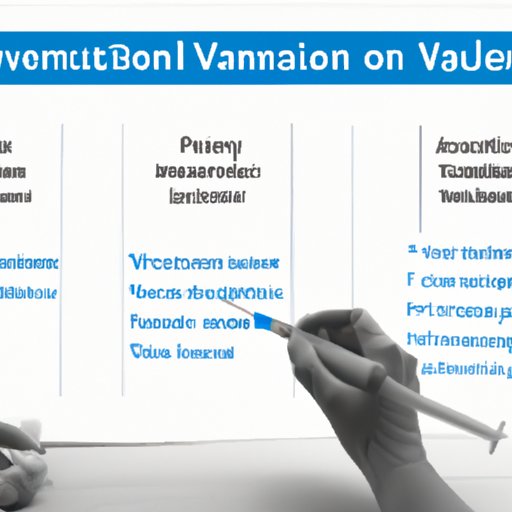Introduction
Travel nurses are a vital part of the healthcare system in the United States. They are nurses who take short-term assignments in various locations, giving them the opportunity to gain experience in different settings while also providing much needed relief to overworked staff in hospitals and other medical facilities. But before they can start their assignments, there are certain health requirements that need to be met, including vaccinations.
Definition of Travel Nursing
Travel nursing is a type of nursing job that involves taking temporary assignments in various locations. These assignments usually last between four and thirteen weeks, and the nurse is typically provided with housing, transportation, and other benefits. Travel nurses often have the opportunity to work in different types of medical facilities, from rural hospitals to large urban centers. As a result, they gain valuable experience in many different settings and can develop their skills as a nurse.
Overview of the Need for Vaccinations
Vaccinations are an important part of protecting both the patient and the nurse. Vaccines protect against many serious illnesses and diseases, such as measles, mumps, rubella, hepatitis B, and more. Vaccinations help ensure that the nurse is not exposed to these illnesses and can provide care without putting themselves or their patients at risk. In addition, many states and employers require vaccinations for travel nurses.

Exploring the Vaccination Requirements for Travel Nurses
What types of vaccines are required for travel nurses? The requirements vary by state and employer, so it’s important to check with your employer to determine what is needed. Generally, most travel nurses will need to be up to date on their childhood vaccinations, as well as receive annual flu shots. Some states may also require additional vaccines, such as those for Hepatitis B or Varicella (chickenpox).
Vaccine-Specific Requirements
Each vaccine has its own specific requirements. For example, the measles, mumps, and rubella (MMR) vaccine typically requires two doses, with the second dose given at least one month after the first. The hepatitis B vaccine requires three doses, with the final dose given at least eight weeks after the first. It’s important to check with your employer to make sure you’re up to date on all the required vaccinations.
Other Health Requirements for Travel Nurses
In addition to vaccinations, there are other health requirements for travel nurses. Most employers require a physical exam prior to the assignment, and some may also require a tuberculosis test. It’s important to discuss any health concerns with your employer before starting your assignment, as they may have additional requirements.
How to Prepare for Your Travel Nursing Assignment: Vaccinations Needed
Once you know what vaccinations are required, the next step is to get them. When to get vaccinated depends on the vaccine, but generally it’s best to get them at least two weeks before your assignment starts. You can get vaccinations at your doctor’s office, a clinic, or a pharmacy. Some employers may also offer free or discounted vaccines through their corporate health plans.
It’s also important to consider the cost of vaccinations. Most insurance plans cover the cost of recommended vaccines, but if you don’t have insurance or your insurance doesn’t cover the cost, you may have to pay out of pocket. Many pharmacies and clinics offer discounts or payment plans, so it’s worth checking around to find the best deal.

What You Need to Know About Vaccinations for Travel Nurses
When it comes to vaccinations, there may be state or regional variations. For example, some states may require additional vaccines for travel nurses, such as those for influenza or meningococcal disease. It’s important to check with your employer to make sure you’re up to date on all the required vaccinations.
If you’re planning to work internationally, you may also need additional vaccines. Depending on where you’re going, you may need vaccines for yellow fever, typhoid, polio, or other illnesses. It’s important to talk to your employer about any additional requirements for international assignments.
Finally, it’s important to understand the long-term vaccine requirements for travel nurses. Some vaccines may need to be updated periodically, such as the tetanus booster every 10 years. It’s important to keep track of these requirements so that you can stay up to date on all the necessary vaccinations.

A Guide to Vaccination Requirements for Travel Nurses
The Centers for Disease Control and Prevention (CDC) provides guidance on the recommended vaccinations for travel nurses. They recommend that all travelers should be up to date on their routine childhood vaccinations, as well as receive annual flu shots. They also recommend certain vaccines depending on the destination, such as those for yellow fever or typhoid. Additionally, they recommend that travelers get vaccinated for hepatitis A, hepatitis B, and rabies.
It’s important to work with your employer to make sure you’re up to date on all the required vaccinations. Your employer may have additional requirements, such as those for tuberculosis or other illnesses. It’s important to discuss any health concerns with your employer before starting your assignment.
Finally, it’s important to stay up to date on all the necessary vaccinations. Some vaccines may need to be updated periodically, such as the tetanus booster every 10 years. It’s important to keep track of these requirements so that you can stay up to date on all the necessary vaccinations.
Do Travel Nurses Have to Be Vaccinated?
The answer is yes—most travel nurses are required to be vaccinated. Vaccines are an important part of protecting the patient and the nurse, and they help ensure that the nurse is not exposed to serious illnesses and can provide care without putting themselves or their patients at risk. Additionally, many states and employers require vaccinations for travel nurses.
However, there may be exemptions from vaccination. Some people may be exempt due to medical reasons, religious beliefs, or philosophical beliefs. If you have questions about whether you are exempt from vaccination, it’s important to talk to your employer.

A Look at Health Requirements for Travel Nurses: Vaccinations Needed
Travel nurses need to be up to date on their vaccinations. The CDC recommends a variety of vaccines, including those for measles, mumps, rubella, hepatitis B, and more. It’s important to check with your employer to make sure you’re up to date on all the required vaccinations. Additionally, some states may have additional requirements, such as those for influenza or meningococcal disease.
For international assignments, additional vaccines may be needed. It’s important to talk to your employer about any additional requirements for international assignments. Finally, it’s important to understand the long-term vaccine requirements for travel nurses, such as the tetanus booster every 10 years.
Conclusion
Travel nurses play an essential role in the healthcare system, providing much needed relief to overworked staff in hospitals and other medical facilities. But before they can start their assignments, there are certain health requirements that need to be met, including vaccinations. Vaccines protect against many serious illnesses and diseases, and they help ensure that the nurse is not exposed to these illnesses and can provide care without putting themselves or their patients at risk.
When it comes to vaccinations, the requirements vary by state and employer. The CDC provides guidance on the recommended vaccinations for travel nurses, and it’s important to check with your employer to make sure you’re up to date on all the required vaccinations. Additionally, it’s important to understand the long-term vaccine requirements for travel nurses, such as the tetanus booster every 10 years.
Travel nurses have to be vaccinated, but there may be exemptions from vaccination. If you have questions about whether you are exempt from vaccination, it’s important to talk to your employer. Overall, vaccinations are an important part of protecting both the patient and the nurse.
(Note: Is this article not meeting your expectations? Do you have knowledge or insights to share? Unlock new opportunities and expand your reach by joining our authors team. Click Registration to join us and share your expertise with our readers.)
